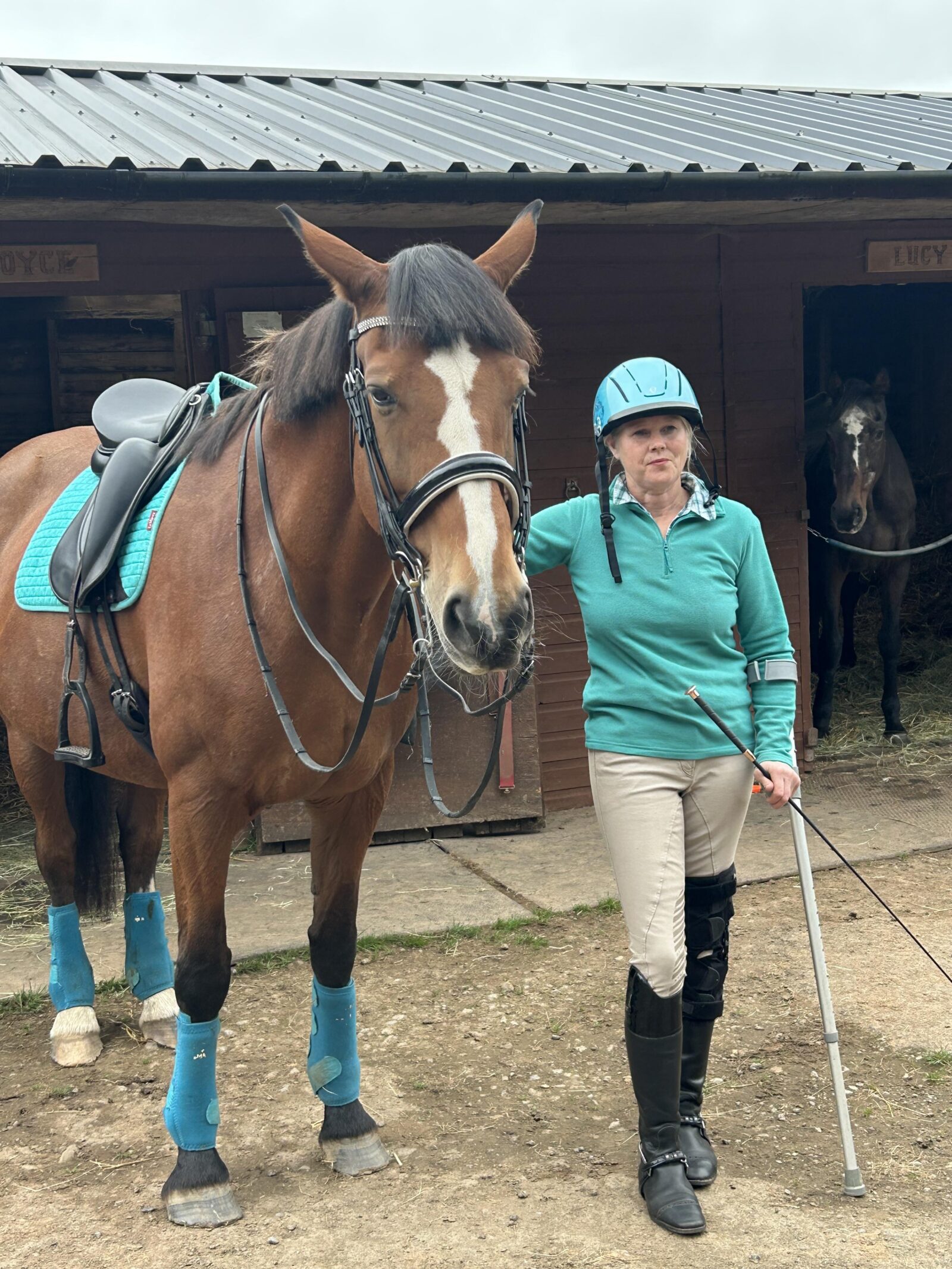A Paralympic dressage horse rider, who has overcome persistent pain to fulfil her dreams, has praised the launch of revised guidance by the Welsh Government to improve outcomes and experiences for people suffering from chronic pain.
Persistent pain can affect anyone of any age, at any time. It is estimated between 33% and 50% of the adult population in the UK live with some form of persistent pain, which equates to as many as 1.3 million people in Wales.
These conditions can have a serious effect on mental health, ability to work, and relationships with friends and family.
New Living with Persistent Pain guidance launched today is focused on helping people to develop skills to manage persistent pain for themselves in their day-to-day life.
This includes supported self-management, improving awareness of persistent pain for primary care staff and the public, advising on the range of management techniques and online tools available, and improved information sharing.
Julia Godden broke her back in July 2018 having previously survived cancer. She suffers with persistent pain in her back due to her injury, and pain in her left leg and hands due to the effects of chemotherapy.
Julia developed techniques to cope by attending a Education Programmes for Patients (EPP) scheme in Gwent, which she now runs.
She has won National Championships, representing Wales and Great Britain, and most recently won the Para Winter Championships 2023.
She said:
“I joined the Riding for the Disabled Association (RDA) while in a wheelchair following chemotherapy treatment for cancer.
“I have spent an awfully large part of my life laid up in hospital beds, and at home being incredibly unwell and injured. I made the decision that if I was well enough to get up then I would always have a goal and that I would focus on that to help me achieve as much as I can while I can. My current goals are to raise money for charities by walking marathons on my crutches and to make it to the Olympics as a Para Dressage rider.
“I manage my pain with tools I learnt by attending the EPP program, which I now administer. I generally expect my pain level to be around a five out of ten, and that will escalate depending on my workload and due to impromptu flare ups.
“I feel this new guidance will help address the misconception that just because you have pain you need to stop. I also hope it will help people to gain confidence in themselves and find support with setting goals and working towards them.”
Health Minister Eluned Morgan launched the new guidance at the first Persistent Pain Conference for Wales.
She said:
“Persistent pain can have major impacts on a person’s quality of life as well as their families. With the right information and support, we can develop persistent pain services in a way that produces better outcomes and experiences for these individuals.
“It is important to Welsh Government that people are supported to take a more active role in their own care. The guidance published today does this by promoting principles of self-management, co-production,
and shared decision-making. It shifts the focus on the person, what matters to them, and not just the medical issue.
“I look forward to working closely with all key stakeholders in the years ahead to deliver on the recommendations of this important piece of work.”








Leave a Reply
View Comments